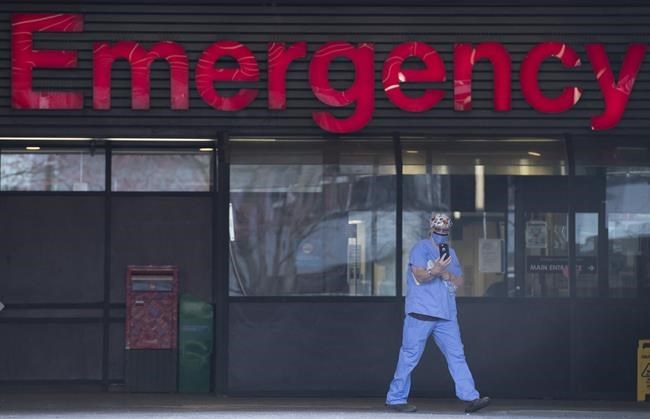EDMONTON — Hospital emergency rooms in Alberta are likely to assess complaints from First Nations people as less urgent than those from other patients, even when their problems are the same, says a new study that looked at millions of such visits.
"If people have a long bone fracture, you might expect the treatment would be the same between groups," said Patrick McLane of the University of Alberta, a co-author of the study published Monday in the Canadian Medical Association Journal.
"First Nations people in emergency departments were less likely to get the higher triage score, which would result in higher urgency of treatment."
McLane and his colleagues analyzed more than 11 million emergency room visits between 2012 and 2017 from all across Alberta. They looked at five different categories of injury or disease as well as five specific diagnoses.
The data revealed that emergency room staff consistently rated First Nations people as less urgent than non-Indigenous.
Overall, the study found 12 per cent of non-Indigenous patients were rated at the most serious levels, whereas eight per cent of First Nations people received that rating.
The finding was consistent through all different types of visits — trauma, infection, substance use, obstetrics and mental health — with the widest gap between First Nations and non-Indigenous assessments coming with substance use.
The pattern also held in three of the five specific diagnoses the team looked at.
A First Nations person showing up in an emergency room with a broken bone had an 82 per cent chance of receiving as urgent an assessment as a non-First Nations person with the same problem. For a respiratory infection, the figure was 90 per cent.
If a First Nations person showed up with an anxiety disorder, they had two-thirds the chance of a high assessment as a non-Indigenous person.
The work is part of a larger effort to address systemic racism in Alberta's health-care system, said co-author Bonnie Healy, a former triage nurse and health director for the Blackfoot Confederacy.
"We are all working on better relationships, better partnerships, to work together for gap closure in some of the health outcomes," she said.
Both said the study isn't conclusive evidence of systemic racism in the province's emergency rooms.
"The differences we see could be multi-causal," McLane said.
But the authors point out their new findings mesh well with previous work they've done. Interview-based studies have found Indigenous people have significant concerns about racism and profiling in emergency rooms.
The same findings result in studies in other jurisdictions.
"This fits into a picture that comes from the literature," McLane said.
Healy said that many First Nations people, lacking family doctors, use emergency departments as primary care. If they're not being treated the same as other patients, that raises concerns about access to overall health care as well as emergency response, she said.
"A lot of the physicians and nurses don't understand that First Nations don't have funded primary care networks in their communities," she said. "We really wanted to gain some understandings on both sides."
Healy said the study will be presented to a group consisting of representatives from Alberta's health ministry and the province's First Nations that have been convened to discuss racism in health care.
This report by The Canadian Press was first published Jan. 17, 2022.
— Follow Bob Weber on Twitter at @row1960
Bob Weber, The Canadian Press
Note to readers: This is a corrected story. An earlier version reported Bonnie Healy as being with the Alberta First Nations Information Governance Centre.



